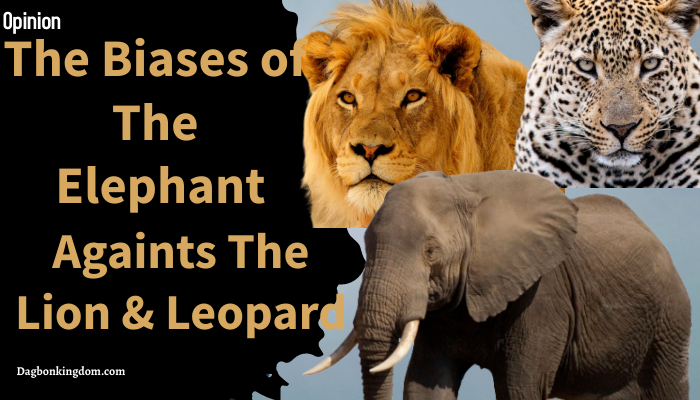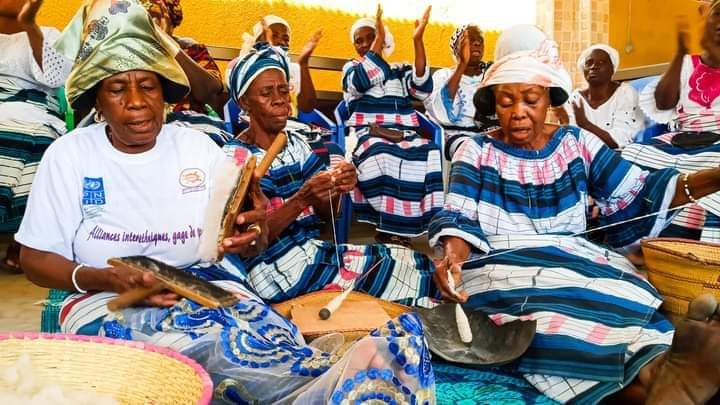
Dagbon is one of the oldest and most respected kingdoms in modern-day Ghana. Our history is not just long, but full of strength, leadership, and pride. For centuries, we have been known for our deep culture, strong traditional systems, and the wisdom of our leaders. The way our society was built allowed us to grow, defend ourselves, and even expand our influence across the region. From the way we resolve disputes to how we govern our people, everything had structure, order, and a sense of pride. We had values that guided both leaders and ordinary citizens.
One of the strongest values that held Dagbon together was Bilchinsi — the idea of living a noble life, being upright, honest, and patriotic. A Bilchina was someone who lived with integrity, someone who would never lie, steal, or bring shame to his family or community. This was the foundation of leadership and citizenship. It was what guided both chiefs and commoners. When you lived by Bilchinsi, you were not just thinking about yourself. You were carrying the name of your family, your community, and your kingdom. To go against Bilchinsi was to disgrace not only yourself, but your people.
Another key value was Kavini — the way we reject anything that goes against who we are. When something wrong is brought before you and you say “Kavini”, you are saying, “That is not me. That is not Dagbon.” It was our way of saying no to bribery, corruption, dishonesty, and all forms of disgraceful acts. These were not just words; they were actions and principles that shaped how we lived. They shaped how we led. These were the values our ancestors used to build a kingdom we could be proud of.
But today, things have changed. When you look around, it is clear that we are no longer living by those same values. We are falling back. The Dagbon that was once admired for its leadership and unity is now struggling to find direction. There is no common vision, no serious coordination, and no leadership that speaks to the future. We have become too relaxed, too divided, and in some cases too selfish. And one of the key issues at the centre of this decline is the kind of leaders we now have.
In our tradition, leadership comes through royal blood. If you are from a royal gate, you are eligible to become a chief. This has always been the way. And in the past, it worked because those who came forward to lead were men of character, discipline, and sacrifice. They were chosen not just because of where they were born, but because of how they carried themselves. They had respect for the people. They had wisdom. They had the spirit of Bilchinsi.
But now, things are different. Today, anybody from a royal family, regardless of character or ability, can become a chief — so far as he has money and connections. We have seen people with no vision, no wisdom, no concern for the people rise to power just because of where they were born. Some are even openly selfish, corrupt, or disrespectful, but they still find their way onto our skins. And once they are there, the damage they cause is hard to reverse.
Let’s face it: royal blood alone is not enough. Being born into a royal family does not automatically make someone a good leader. Leadership is not just about inheritance. It is about capacity, understanding, values, and a sense of responsibility. If we continue to hand over our skins to people simply because they are royals without looking at their personal qualities, we will continue to fall behind.
Yes, we understand that royal birth is part of our culture. We may not be able to change that. But if we must keep royal blood as a requirement, then we have to go beyond it. We have to start looking seriously at who the person is. What is his character? What does he stand for? What is his track record in life and in service? What kind of vision does he have for his people?
And beyond that, we have to ask another important question: How are we grooming the next generation of leaders from royal families? What kind of education are we giving them? What schools are they attending? What are they being taught? Are we training them to understand justice, accountability, and modern leadership? Are they exposed to how the world is changing and what it means to lead in these new times?
Many of the problems we face today are not the same as what our ancestors dealt with. We are now in a world of technology, complex development needs, youth unemployment, environmental challenges, land pressure, and more. Leadership today must be strategic. It must be open-minded. It must be forward-looking. If we don’t prepare our future chiefs with the right mindset and tools, we are setting them up to fail — and by extension, setting the kingdom back.
So what are we doing to intentionally prepare them? We can’t just wait until someone is old enough and say, “Now you can come and sit on the skin.” Leadership doesn’t begin when you wear the smock and sit on the throne. It begins with learning, exposure, and a deep sense of purpose. If we want royal blood to matter, then we must raise royals who are ready, fit, and committed.
In addition to grooming them, we must also put systems in place to make sure our leaders are accountable. Even if we select the right person, power without checks and balances leads to abuse. Leadership is not a personal title; it is a public responsibility. Our chiefs must work with councils that function, that provide advice and oversight. There must be community involvement. There must be transparency in how resources are used. When the chief gets support, the community must feel it.
It is not about removing our traditions — it is about strengthening them. Our systems should work in a way that protects the people and promotes fairness. That is how our ancestors led. That is how they built Dagbon. They didn’t lead to enrich themselves. They led to defend the land, preserve peace, and make life better for their people.
But as we talk about leadership, we must also look at ourselves — the ordinary citizens. Are we playing our part? The way we support our political parties with all our strength, money, and emotions — do we put that same energy into our traditional leadership and development? After working hard and making it in life, do we come back home to invest? Or do we take everything down south and forget where we come from?
If we don’t invest in Dagbon, who will? If we don’t build schools, clinics, businesses and jobs here, why should anyone else come and do it for us? We say we love Dagbon, but sometimes our actions show something else. True patriotism is not about clapping for every leader or remaining silent when things are wrong. It is about speaking the truth and doing our part. The kingdom belongs to all of us. The responsibility is shared.
We cannot continue doing things the same way. The world is moving. Other traditional areas are rising. They are organizing, planning, and building. If we don’t wake up, we will be left behind. And we will have only ourselves to blame.
It is time for us to reflect. We must ask serious questions. Is royal blood enough? Is it giving us the leaders we need for today and tomorrow? Are we preparing our royals for leadership or just hoping they will figure it out? Are we building systems to check power and promote fairness? Are we, the citizens, supporting development with our actions?
It is not too late. We can change. We can rebuild. We can go back to the principles of Bilchinsi and Kavini — not just as words but as a way of life. We can raise leaders who lead with dignity. We can create systems that work for the people. We can invest in our own land and lift each other up. But we must be deliberate. We must be united. We must be honest with ourselves.






